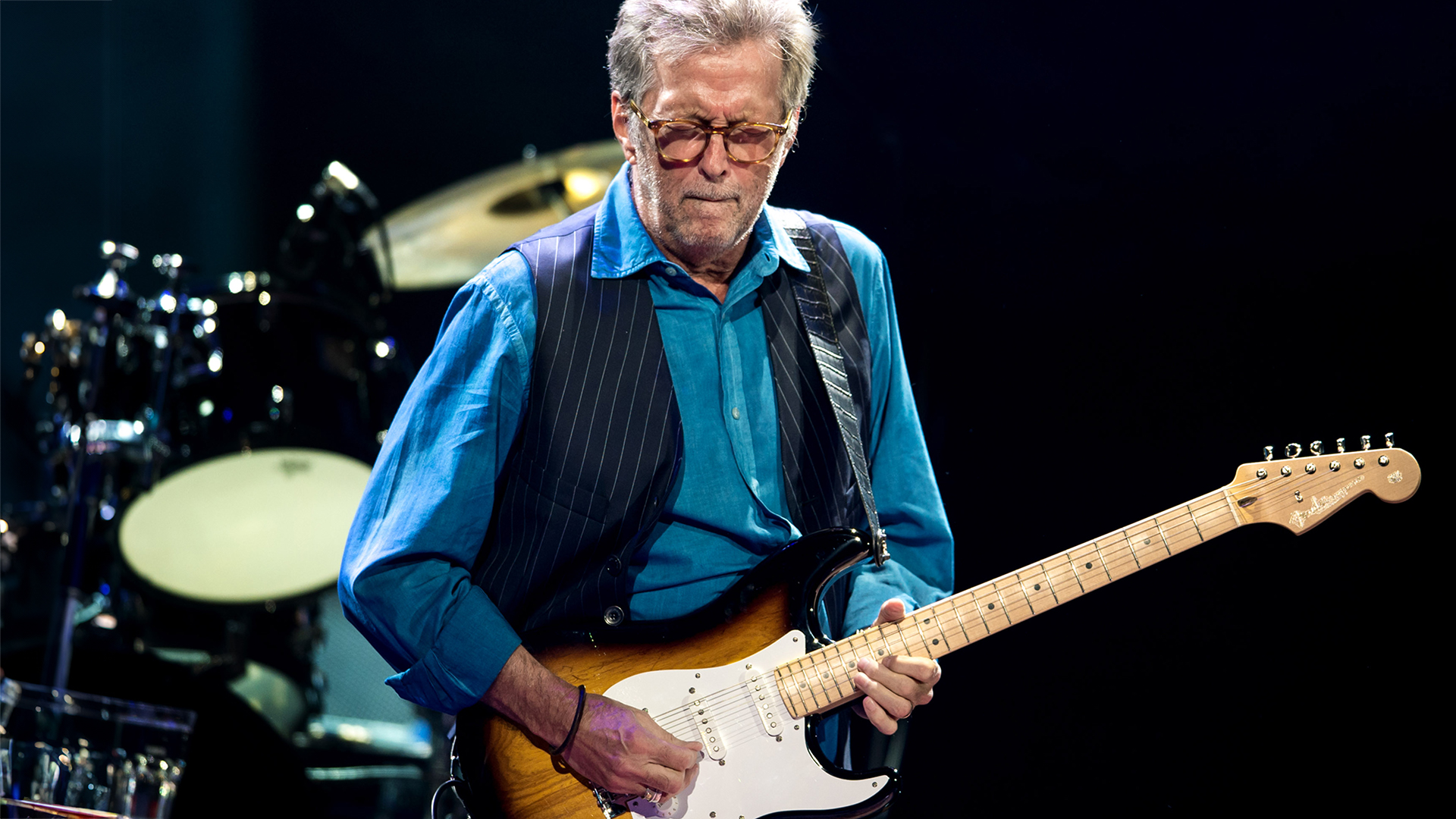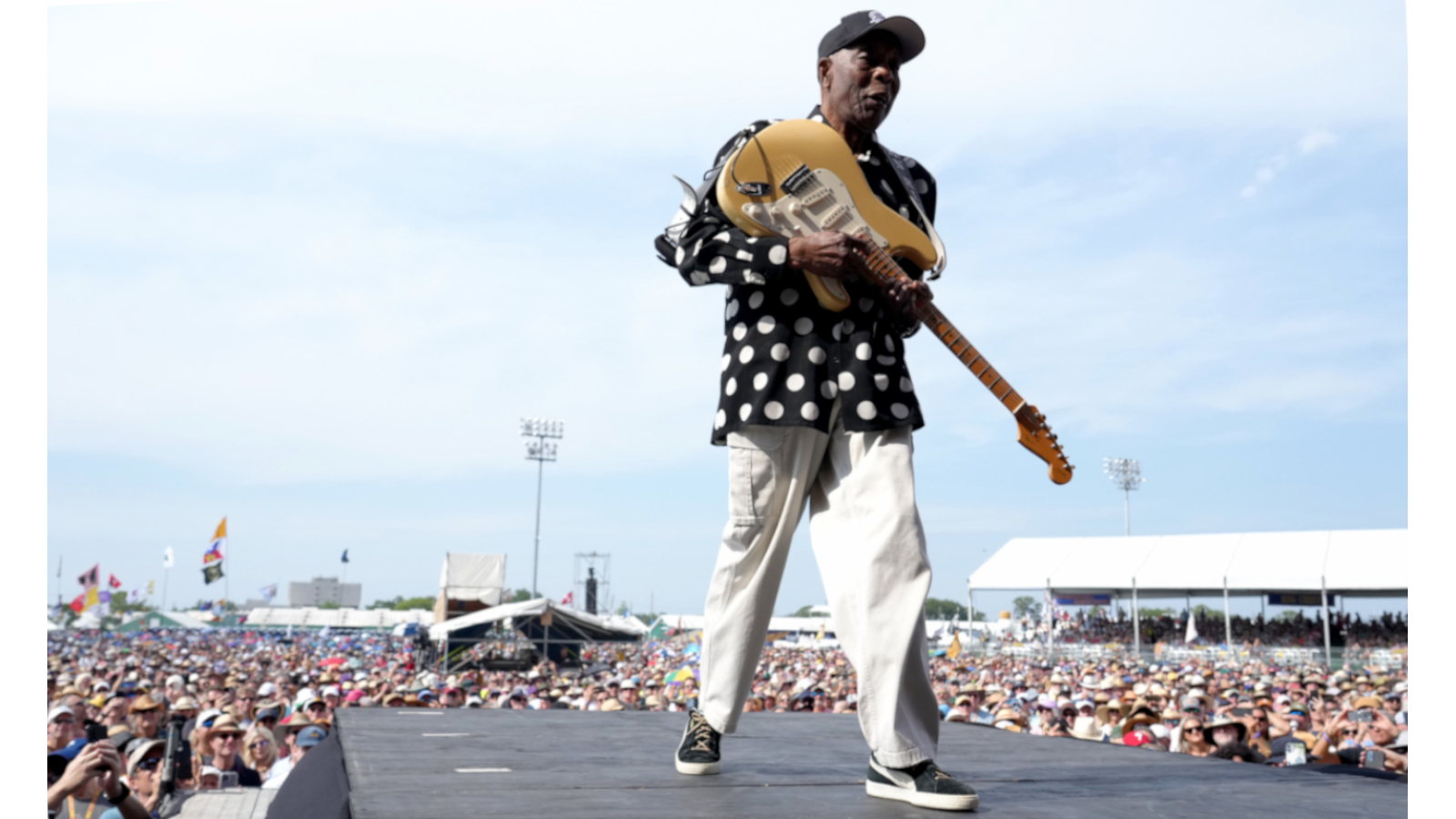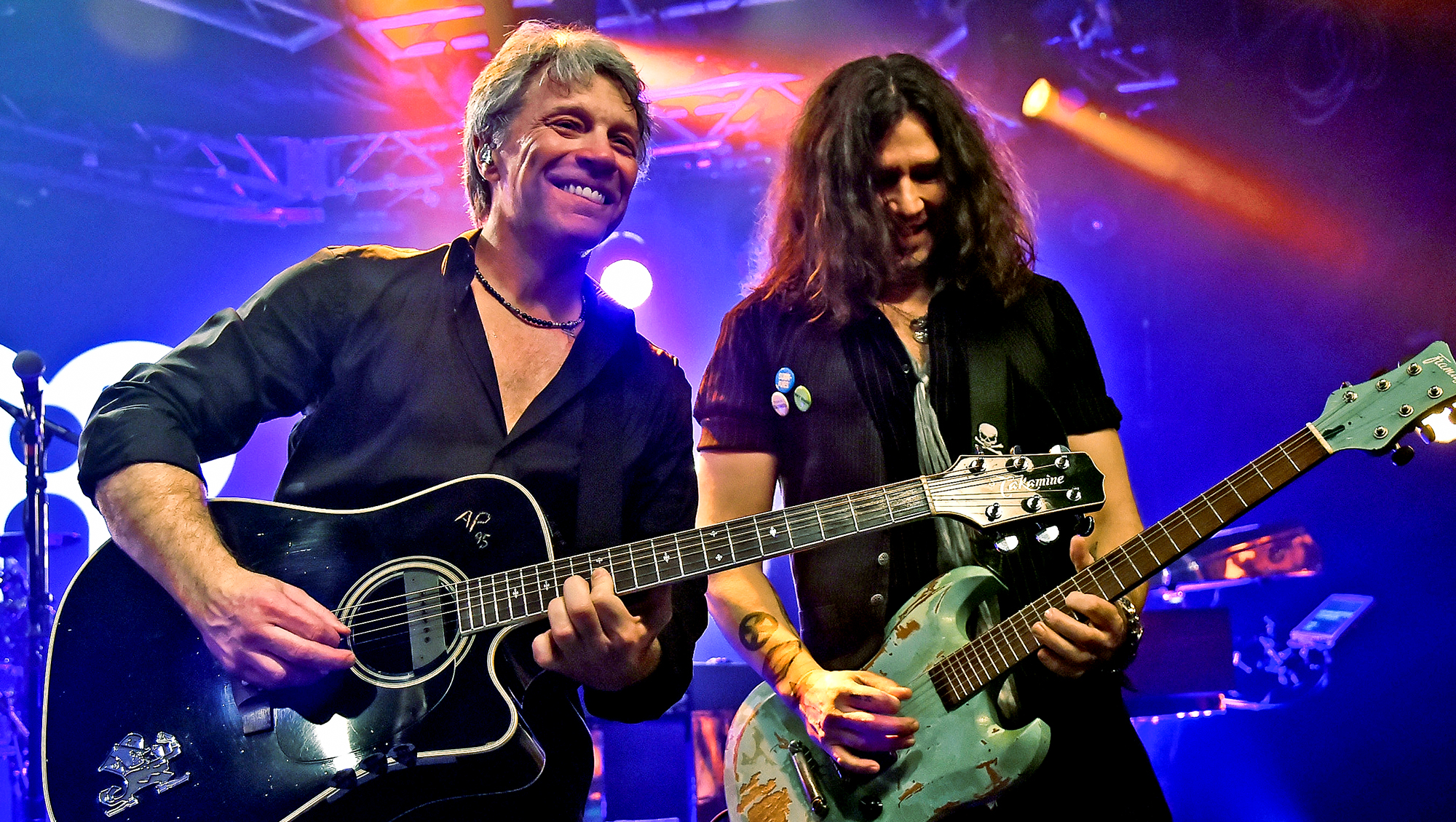“He let everyone know he was the new dangerous kid on the block. It started me on a relentless mission to find out just who this man was”: Eric Clapton reveals the guitarist that inspired him to quit the Bluesbreakers and form Cream
Buddy Guy's 1965 show at the Marquee Club made Slowhand realize he needed to escape John Mayall's shackles

By the mid-’60s, Eric Clapton was one of the hottest guitar players on the planet, spearheading a new and exciting virtuoso guitar movement. Transitioning from John Mayall’s Bluesbreaker's slow licks to Cream’s adrenalized blues solidified his reputation, but it couldn’t have been forged without Buddy Guy laying the foundations for him.
From Howlin' Wolf to B.B. King and beyond, a litany of talent helped propel blues guitar playing into the spotlight, but Clapton believes that no artist changed the perception of what a guitarist could do like Guy.
Speaking at the bluesman’s inauguration into the Rock and Roll Hall of Fame in 2005, Clapton said: “Buddy did far more than just hold his own. In my humble opinion, he stole the show.”
In 1963, Guy had been part of the Folk Festival of the Blues LP which, recorded over several nights in Chicago, also featured Muddy Waters, Howlin’ Wolf, Willie Dixon, and Sonny Boy Williamson.
“He let everyone know that he was the new dangerous kid on the block,” Slowhand extends. “It is still one of the great debut albums of any artist in any genre and it started me on a relentless mission to find out just who this man was.”
A deep dive into his piecemeal discography ensued, with many becoming “milestone recordings” for the guitarist.
He'd starred on Chess Records tracks since 1958, often featuring on songs by Otis Rush, Muddy Waters, and Little Walter, “and no matter how great the song or the performance, my ear would always find him out,” says Clapton.
All the latest guitar news, interviews, lessons, reviews, deals and more, direct to your inbox!
“He stood out in the mix simply by virtue of the originality and vitality of his playing.”
It wasn’t just his playing that encapsulated his attention, either. Despite plying their trades on different sides of the Atlantic ocean, he saw a lot of himself in Guy's story.
“He was a younger blues musician in a field totally dominated by much older guys. I could identify with him,” he says. “There he was, standing beside the masters of his craft, holding his own and confidently pushing the blues into the 20th century.”
In ‘65, he was able to see his idol live, backed by a bass player and drummer for a show at London’s prestigious Marquee Club. It proved a change-making moment in Clapton’s career.
During his Hall of Fame speech, he'd called the show “earth-shattering,” with Guy playing electric, forward-thinking blues and pulling out tricks – like playing with his teeth – that Hendrix would later make his own.
“What it said to me was 'this was possible,’” he recalled in a 2005 interview. “If you were a good enough guitar player, you could do it as a trio. It seemed to be so free, you could go anywhere. With Jack [Bruce] in my filing cabinet, and being in a fairly rigid structure like John Mayall's band, I was thinking about that as a way of breaking free.”
Clapton left the Bluesbreakers a year later, in ‘66, with Peter Green craftily talking his way into the spot he'd vacated. Suddenly the guitarist could spread his wings like he’d admirably watched Guy do.

Clapton has previously gone on record calling Guy the greatest guitar player alive. When the Dallas Observer asked for his response to such an accolade, he was quick to repay the compliment while remaining characteristically humble.
“It's nice of Eric to say that, but I still have to go out and prove that I can play a few licks,” he had said. “I don't take that for granted. Hell, if Eric says that I am the greatest guitar player ever, then maybe I am.”
The argument over whose talents are better could rage on for centuries after both are long gone, but what cannot be understated is how much Guy excited Clapton.
Without his sonic influence, and seeing the flexibility a trio could give him, Clapton may never have gone on to form Cream and elevate the blues to another level. Just like he felt Guy did when he first played his way into the scene.
A freelance writer with a penchant for music that gets weird, Phil is a regular contributor to Prog, Guitar World, and Total Guitar magazines and is especially keen on shining a light on unknown artists. Outside of the journalism realm, you can find him writing angular riffs in progressive metal band, Prognosis, in which he slings an 8-string Strandberg Boden Original, churning that low string through a variety of tunings. He's also a published author and is currently penning his debut novel which chucks fantasy, mythology and humanity into a great big melting pot.

